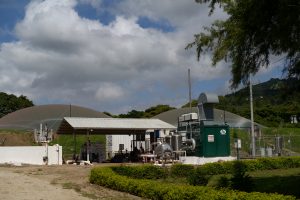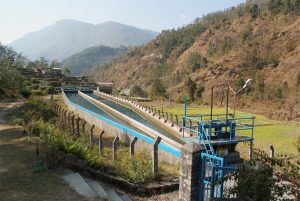Sustainable Energy Finance
"Financing the Future: Powering Indonesia's Energy Transition"
Leveraging innovative finance to accelerate Indonesia’s shift towards sustainable energy, bridging the gap between ambition and action in the energy sector.
Mission Statement
GIZ supports the Government of Indonesia (GoI) in setting up the framework for financing the energy transition, through fiscal policy reform, the design of applicable finance instruments and the set-up of de-risking facilities needed to incentivize private investments. GIZ supports its partners in integrating public and private finance instruments and developing innovative financing approaches to accelerate a sustainable energy transition.
Why?
Over the past years, Indonesia has continuously increased its climate commitments: The Enhanced Nationally Determined Contribution (NDCs) call for an increased emission reduction target from 29% to 31.89% by 2030, and a Net Zero Emission (NZE) target until 2060, or earlier, was announced. The Presidential Regulation 112/2022 specifies the ambition to phase out coal-fired power plants (CFPPs) and boost renewable energy (RE) uptake. The Just Energy Transition Partnership (JETP) further explores coal phase-out financing mechanisms through the Energy Transition Mechanism (ETM). Presidential Regulation 98/2021 on the Economic Value of Carbon identifies various mechanisms, including a carbon tax and an emission trading scheme related to the trend of energy transition. In line with this, a new industry decarbonization target was announced by the Minister of Industry (MoI) to move NZE forward to 2050.
However, the development of the clean energy sector in Indonesia is still stagnating. The Ministry of Finance (MoF) in 2023 estimated that energy transition financing carried out by Indonesia to achieve the Enhanced NDCs unconditionally would require IDR 3,500 trillion, or USD 246 billion specifically for the energy sector. The JETP’s commitment of USD 20 billion is not sufficient to finance Indonesia’s energy transition.
For that reason, GIZ supports setting up the framework for financing the energy transition, through essential support on fiscal policy and measures, optimising finance instruments and de-risking facilities needed to leverage private investment, as well as integrating structures and developing innovative instruments in accelerating the financing for energy transition.
What?
With whom?
How?
- Policy Advisory to reforming subsidies, incentives and pricing policies (Incl. Fiscal incentives) to MoF and other related ministries. Some of the related topics but not limited to are:
- Setting up Policy De-Risking Facilities to support finance policies, risk management quality standards, and enhance project feasibilities.
- Setting up Finance De-risking Facilities, e.g. a Project Development Facility, Viability Gap Fund, guarantee or insurance provision, green bonds or sukuk, seed capital and convertible grants.
- Facilitating Blended finance, integrated Public and Private Investments
- Provision of Training for regulators, project developers, investors and financiers.
- Organising Dialogues and Project Matchmaking between regulators, financiers, and developers/ investors.
When?
GIZ supports the targets outlined by the GoI towards NZE 2060, and the JETP by 2030. This entails the following success indicators:
- JETP ETM country platform in place
- Regulatory framework for RE & EE financing strengthened
- Electricity and fossil fuel subsidy reform strengthened
Who?
- Topic leads: Deni Gumilang, Budi Kuncoro
- Thematic Experts: Hubertus Victor Gorat (energy fiscal), Thres Sanctyeka (climate fiscal), Alin Pratidina (carbon pricing mechanism), Ichsan Loeksmanto (sustainable energy finance), Maysa (decarbonization, energy finance),

